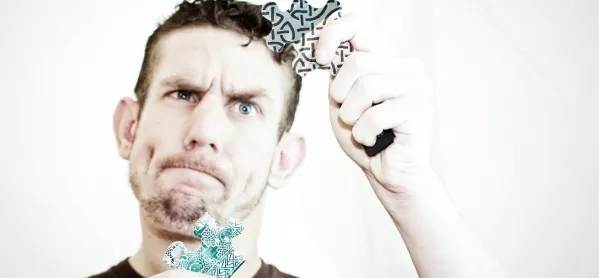In amongst the mountains of messages cluttering up teachers’ pigeon-holes about what they need to do to improve is one about the value of research.
It’s shoved, chugger-like, right in your face by policy advisers and thinktanks, it is more subtly distributed by businesses and NGOs active in the schools’ sector, and it even peeps out occasionally from behind the curtains at the Department for Education.
But the most fertile soil it has found is through the popular and grassroots researchEd movement.
When you’re besieged and harangued from all sides, it’s no surprise that thousands of ordinary teachers have turned to what they believe is the objectivity and neutrality that research has to offer. Several significant and influential organisations have built their advice - and established their reputations - on this new wave of interest, and faith, in what the research promises to tell us.
Now, I’ve learned a thing or two about research ever since, as a postgraduate, I first thumbed through original documents in the hushed sanctity of the Shakespeare Birthplace Trust. I’ve probably read a small forest’s worth on everything from Augustinian theodicy to virtual presence technology; I’ve designed and written my fair share and been paid to do so, too.
But one thing I have always been acutely aware of is that there is nothing objective or neutral about it. Like everything human beings create, it comes with sticky little fingerprints all over it.
So when I recently attended the researchED event in London, and heard quite a lot being said about teachers’ bias, I felt a distinct urge to root out the magnifying glass and dusting powder.
According to the research, teachers are prone to bias in the way they assess children in every imaginable way and what’s more, they must stop it. Naughty teachers.
Various research studies have identified teachers’ bias in terms of race and gender, as well as marginally less politically correct weaknesses like behaviour and special educational needs.
Beware, the “halo effect”, US psychologist Edward Thorndike’s trademark version of cognitive bias, is coming to a CPD session near you. In the hope that you can at least go prepared, here are a few insights that my “do-it-yourself Sherlock” kit threw up.
Most of the research in this area compares teachers’ assessments with summative test scores to try and expose teacher bias. The largest review of these studies, scrutinising the reliability of teachers’ assessments, itself admits what’s fundamentally wrong with this idea when it says: “Evaluating teacher assessment by correlation with test results is based on the false premise that they assess the same things.” Yet this remains one of the most frequently cited sources of evidence for teacher bias.
Flimsy evidence
If that wasn’t worrying enough, the central UK study cited by most voices seeking to assert the presence and unacceptability of teacher bias questioned just 128 teachers and involved their views on 1,766 children: they were all 7 years old and it dates from 1993.
My personal favourite sticky little thumbprint is the one in which teachers were asked to judge how some of their students had scored on an external, oral, foreign language test and those judgements were compared with the A, B or C grade they had already given them in class.
This authoritative piece of “research” concluded that the “academic letter grade severely biases teacher judgements”. Such was the rigour and gravity of this crucial discovery by social science, it involved a grand total of eight teachers and four students each.
I’ll leave all those of you out there battling to explain to teenagers what a light year is as a unit of astronomical distance, the potential impact of genomics on medicine, or why Othello shoves a pillow over the face of a wife who loves him, to decide just how much this kind of research can add to your skills.
BBC radio has a special programme dedicated to exposing public misappropriations of statistics in politics and everyday life called - with an admirable sense of wit - More or Less. It attempts to expose something vaguely resembling the truth behind the statistics that politicians and others so often rely on to justify their views.
But with educational research, it’s not just a question of getting to grips with the numbers, the language is just as slippery.
If teachers are going to be able to understand and evaluate, never mind adopt, any research being chugged on the pavement or coyly waved from behind the DfE’s net curtains, then they will need help from professionals at least as sceptical and untainted as the More or Less team to sort out the pearls from the swine.
Joe Nutt is an educational consultant and author
Want to keep up with the latest education news and opinion? Follow TES on Twitter and like TES on Facebook




